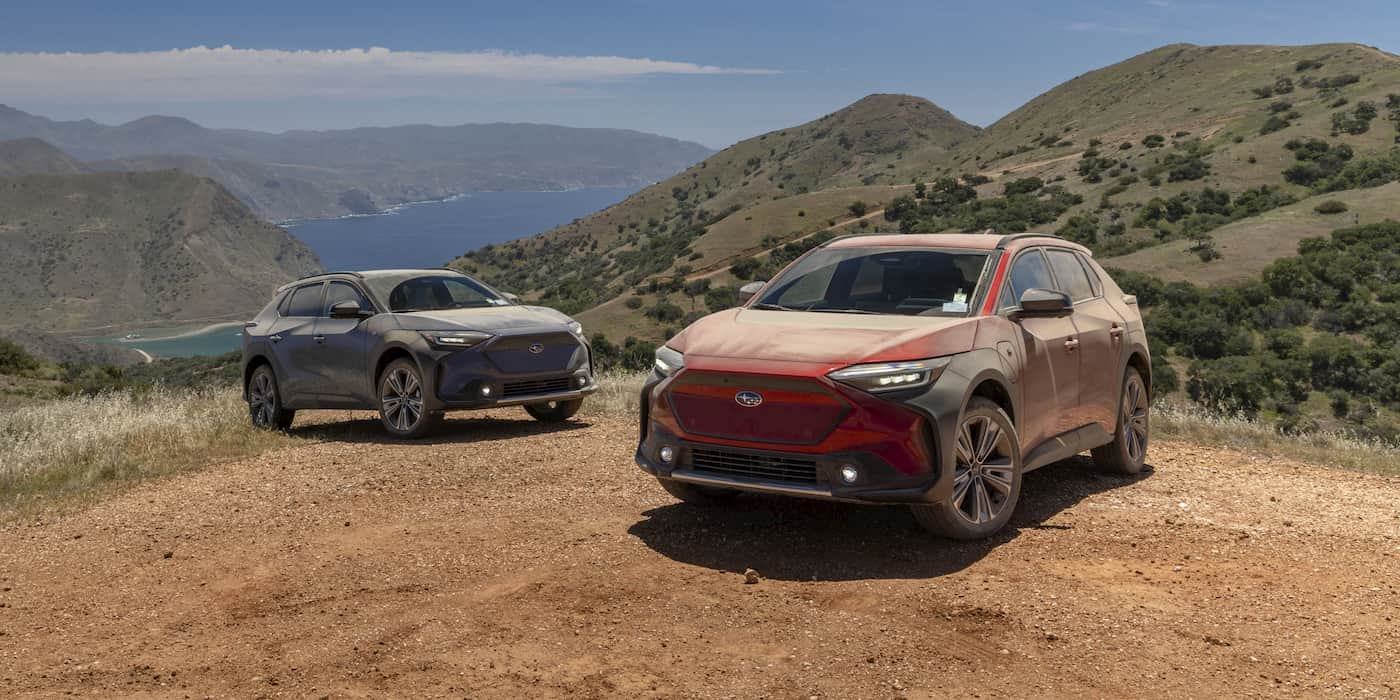
Subaru and Toyota are building on their partnership with plans to build three new electric crossovers. The company said that teaming up with Toyota will help minimize the “huge risk” of building EVs alone.
“There is a huge risk for us to go it alone in this field,” Subaru CEO Atsushi Osaki said during a conference on Monday.
After operating profits climbed 75% this fiscal year, Osaki explained, “At the moment, it is quite difficult to predict how things will go from here with EVs.” Subaru only sold 14,000 units of its sole all-electric car, the Solterra, last year, including 8,872 in the US.
Of the 852,000 vehicles delivered globally in 2023, fully electric vehicles accounted for only 1.6% of total sales.
With Subaru’s EV sales falling in the critical US, the automaker revealed a new strategy to turn things around.
Under Osaki, who took over the reins last April, Subaru is aiming for a 50% EV sales share, or around 600,000 unit sales, by 2030. Although still on the lower side, that’s up significantly from the previous 40% combined hybrid and EV sales target under the last strategy.
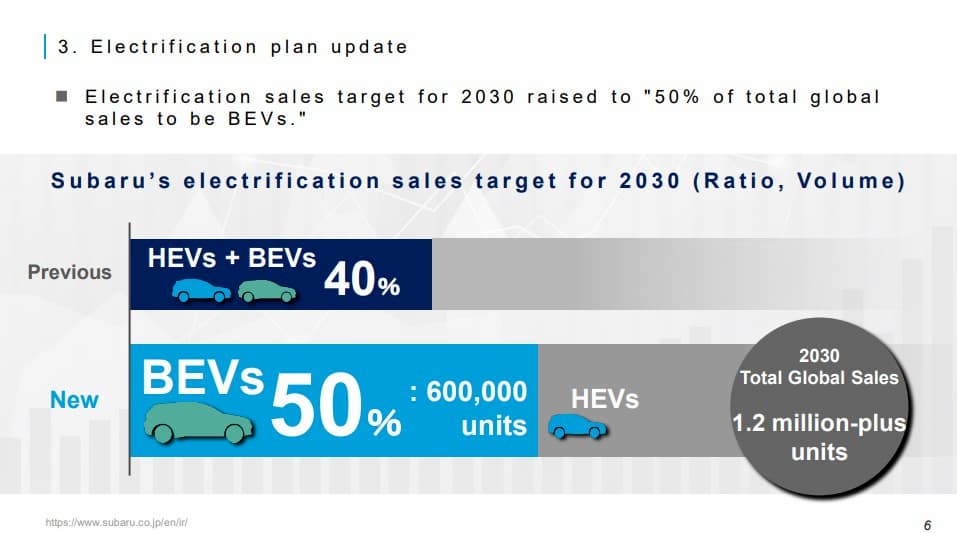
The plans call for four fully electric SUVs, including the Solterra, by the end of 2026. By the end of 2028, Subaru will add four new EVs, for a total of eight.
In the US, Subaru aims to sell 400,000 EVs in 2028, up over 4,400% from the 8,872 Soltera models sold last year.
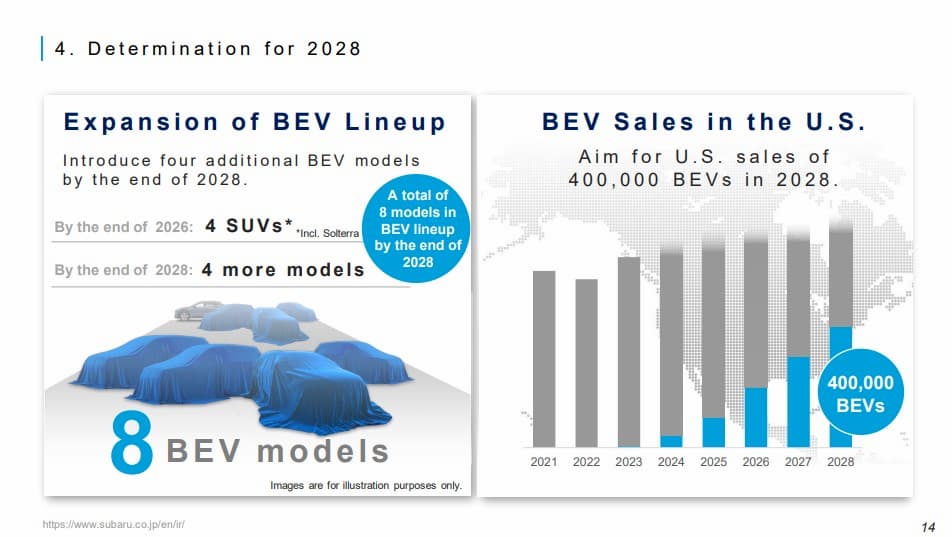
Subaru and Toyota team up for three new EVs
The Subaru Solterra is already built at Toyota’s factory in Japan, but Osaki said the three new EVs will be jointly developed and built with Toyota.
Toyota has a 20% stake in Subaru, but the move will help the smaller Japanese automaker minimize its risk as it transitions to electric. “We have held talks with Toyota and have agreed that it is better to reduce risks through joint development,” Osaki explained (via Automotive News).
Subaru’s leader was also hesitant about plans to develop EVs in-house for the US market. “I have not said that we would do BEV production at our own plant in the US,” Osaki said.
“As the market changes considerably, we will proceed while studying the situation carefully.” With Toyota building its EVs locally, Subaru will gain access to the federal EV tax credit, which could help boost demand.
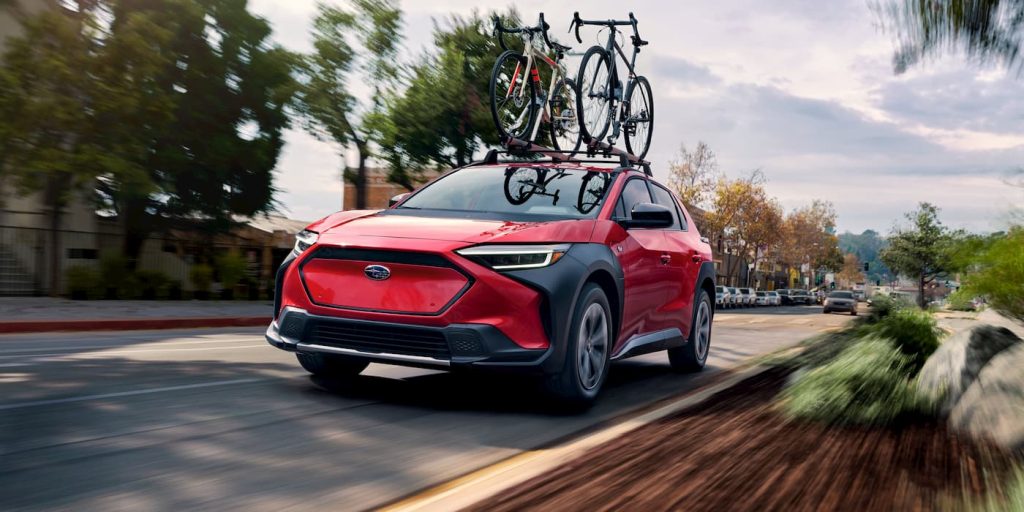
Subaru also revealed plans to expand its hybrid lineup. “While we have steered toward EVs, we find it important to sell internal combustion products at the same time,” Osaki said.
Subaru will build one of the three new EVs at its Yajima plant in Japan to supply to both automakers. Toyota will manufacture one in the US, also for both companies.
Toyota is expected to build Subaru’s first three-row electric SUV in Kentuck in 2025, shortly after launching its own larger SUV.
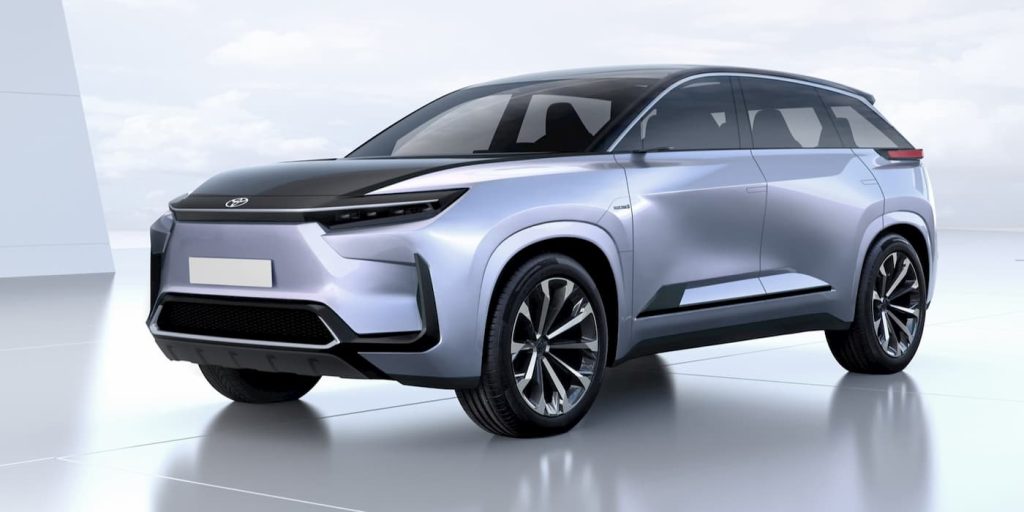
Subaru plans to begin in-house EV production in Japan from 2025 with about 200,000 annual capacity. It will add dedicated EV production lines in 2027, which will add an additional 200,000 units.
Electrek’s Take
After falling behind as the market shifts to electric, several Japanese automakers are teaming up. Nissan and Honda confirmed a partnership in March to advance EV and software development.
As Japanese automakers look to keep pace with EV leaders like BYD and Tesla, joint ventures are not surprising. The move allows Subaru to take advantage of Toyota’s network while preparing for its next wave of EVs.
Meanwhile, the companies better get moving. With only a single-digit (and less than 2%) EV sales share, Subaru and Toyota are already behind.
By now, many automakers are already hitting double-digit or even 100% EV sales. With a 50% EV sales goal by 2030, Subaru is still aiming lower than its peers.
FTC: We use income earning auto affiliate links. More.
